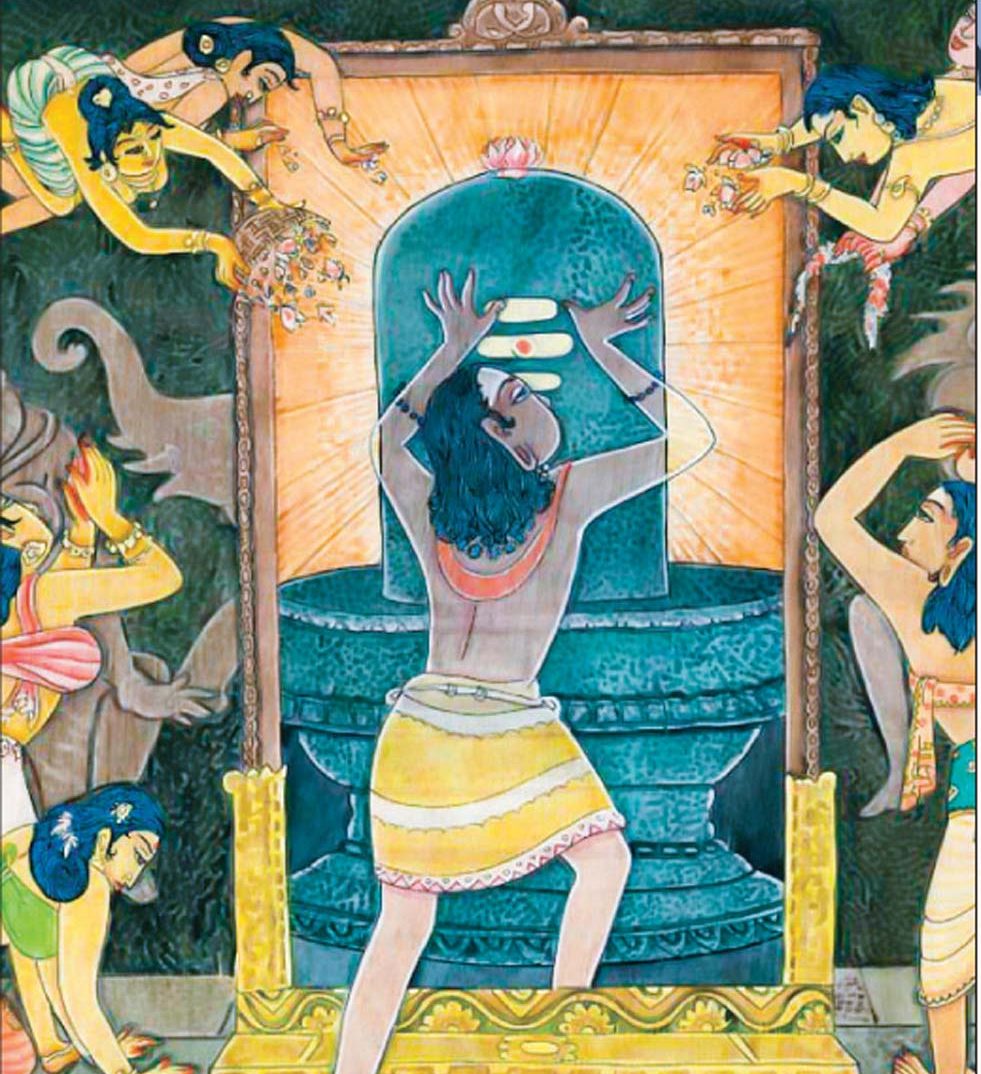Vedic elucidations on the natural transition from human life
The following is a translation of the Brihadaranyaka Upanishad’s chapter four, section four, from The Principal Upanishads by S. Radhakrishnan. This Upanishad belongs to the Shukla Yajurveda. The following verses, 1 to 13, edited for clarity, are part of a dialogue between King Janaka of Videha and Sage Yajnavalka .
1 When this self comes to weakness, confusion and when difficult breaths amass, he gathers to himself his particles of inner light and descends into the heart. When the person behind the eye turns within, he becomes unobservant of outer light.
2 Those around him say: “He is becoming one, he does not see; he does not smell; he does not taste; he does not speak; he does not hear; he does not think; he does not touch; he does not know.” The point of his heart becomes bright, and by that light the soul departs, either through the eye or through the head or through other parts of the body. When he thus departs, life departs after him, and after it all the vital breaths follow. He becomes one with the intelligence which departs with him—his knowledge, his work and his past experiences.
3 Just as a caterpillar, having come to the end of a blade of grass, draws itself together before reaching for the next blade, so does this individual draw itself together in making the transition to another body.
4 As a goldsmith takes a piece of gold and turns it into a new and more beautiful shape, so does this soul—after having thrown away the body and dispelled its ignorance—make unto himself another, newer and more beautiful shape, like that of the ancestors or of the gandharvas, or of the Gods, of Prajapati or of Brahma.
5 That soul is, indeed, Brahman, but is identified with the mind, with life, sight, hearing, earth, water, air, ether, light, darkness, desire, disinterest, anger, quietude, righteousness, wickedness and with all things. This is what is meant by saying that it consists of this (what is perceived) and consists of that (what is inferred). According as one acts, according as one behaves, so does he become. The doer of good becomes good, the doer of evil becomes evil. One becomes virtuous by virtuous action, bad by bad action. Others, however, say that a person consists of desires. As is his desire, so is his will; as is his will, so is the deed he does; whatever deed he does, that he attains.
6 On this there is the following verse: “Being attached, he, together with the work, attains that result to which his subtle body or mind is attached. Exhausting the results of whatever work he did in this life, he returns from that world to this for (fresh) work.” This is for the man who has desires. But the man who is without desire, who is freed from desire, whose desire is satisfied, whose desire is the Self; his breaths do not depart. Being but Brahman, he is merged with Brahman.
7 On this there is the following verse: “When all the desires that dwell in the heart are cast away, then does the mortal become immortal, then he attains Brahman, here, in this very body.” Just as the slough of a snake lies on an anthill, dead, cast off, even so lies this body. But this disembodied, immortal life is Brahman only, is light indeed.
8 On this there are the following verses: “The narrow, ancient path which stretches far away has been found by me, has been realized by me. By it, the wise, the knowers of Brahman go up to the heavenly world after the fall of this body, having been freed, even while still alive.
9 “On that path they say there is white, blue, yellow, green and red. That path was found by a brahmana and by it goes the knower of Brahman, the doer of right and the shining one.”
10 That self is, indeed, his will; so is the deed he does; whatever deed he does, that he attains.
11 Those worlds covered with blind darkness are called joyless. To them after death go those people who have not knowledge, who are not awakened.
12 If a person knows the self as “I am this,” then wishing what, and for desire of what should he suffer in the body?
13 Whoever has found and has awakened to the self that has entered into this perilous, inaccessible place (the body), he is the maker of the universe, for he is the maker of all. His is the world; indeed, he is the world itself.
SARVEPALLI RADHAKRISHNAN (1888-1975) was an Indian philosopher and statesman, India’s first Vice President (1952–1962) and second President (1962–1967)


